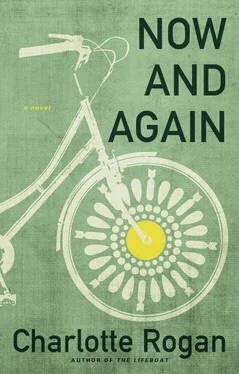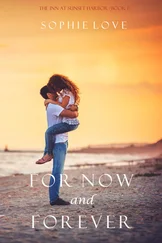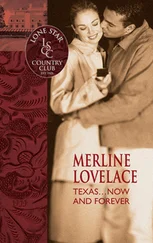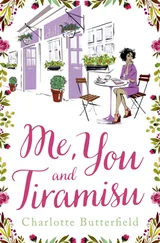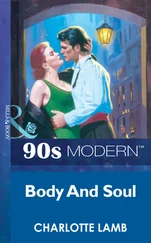“No, no, nothing like that,” said the sheriff. “I’m just wondering where you’re headed, is all.”
Lyle knew he didn’t have to say anything. He knew a man’s thoughts were his own and nobody had a right to force them out of him. He knew it wasn’t legal to pull people over and interrogate them without just cause, so he didn’t say anything, only waited for the sheriff to continue.
“I want to show you something,” said the sheriff. “Something you might appreciate. Something that might make you sleep a little better at night.”
Lyle unbuckled his seat belt, got out of the truck, and walked with the sheriff around the back of the glossy pickup. The sheriff ran his hand along the truck’s flank where COUNTY SHERIFF was painted in gold letters outlined in black. He pointed to a gun rack bolted to the reinforced frame of the truck, drawing Lyle’s attention to two hunting rifles and two military-style weapons, and then he waved at a pile of SWAT team vests that were stashed in the cargo bay and also at a locked box that contained, he said, a thousand rounds of ammunition. “We’ve got the exact same gear as Will’s got in Iraq,” said the sheriff. “Only some of it’s a different color. And when the current conflict ends, where do you think all that surplus military equipment is gonna go?”
“Where?” asked Lyle.
“Cities and towns just like Red Bud, that’s where. It’s amazing what you can get if you agree to certain priorities.”
“What priorities?” asked Lyle.
“Drugs, terrorists, illegals, that sort of thing. Those are Uncle Sam’s priorities, and there are a lot of financial incentives for communities like Red Bud to make them ours as well.”
Lyle didn’t know what the sheriff was getting at, so he asked, “What are you getting at, Sheriff? Do you think I’m into drugs?”
“Heck no, Lyle.” The sheriff gave a snort and squinted up at the sun before fixing his sights back on Lyle, who asked, “Are there terrorists in Red Bud?”
“I’m just thinking you’d like to know that for a tiny little town, we’re pretty well equipped for keeping the peace ’n’ all. You might like to know that we’re dedicated to keeping our citizens safe and that it’s better for a person who’s done something wrong to turn his or herself in.”
“How does a person know if he’s done something wrong?” asked Lyle. His heart sank with misgivings. He wondered if it was legal to sleep in his truck or if he was breaking the law on the nights he didn’t stay at Lily’s.
“Jeezus, Lyle. What kind of a question is that?”
As the sheriff drove away, Lyle tried to think of what else he might have done wrong. If it didn’t have to do with the truck, then perhaps it had to do with the house, but the house no longer belonged to him. His bank account was overdrawn — that was sure to get him crosswise with the law. It was possible it had to do with the munitions plant, even though he didn’t work there anymore. And then it dawned on him — the sheriff wasn’t interested in him at all.
11.8 Maggie
The first driver took Maggie as far as Flagstaff. “In case you’re interested, it’s a straight shot to the Grand Canyon,” he said. “You may as well see it, now that you’re here.”
Why not? thought Maggie. She had always wanted to see the Grand Canyon, and there was no telling when she’d get another chance.
When the second driver let her out at a visitor’s center, it was as if she’d been dropped onto another planet, or as if she were seeing her own planet for the first time. It was as if all the churches of the world had exploded or turned inside out or been transformed in some way so that all that was sparkling and glorious now lay before her. Every stained-glass color, every vertiginous drop, every astonishing element of the universe was spread out like an all-you-can-eat buffet of miracles. Even surrounded by a crowd of sightseers, she felt alone with the majesty. Even hemmed in by the safety barricade, she felt as if she could fall at any moment, as if she was falling, as if she had fallen and then her wings had caught and held the way the wings of the birds that drifted in slow circles over the chasm had caught and held and lifted. Her breath came in short gasps. Her heart expanded in her chest. Her eyes bulged and didn’t blink. How she had come to be there seemed both strange and inevitable. None of it made sense to her, but perhaps that was not a useful way to think about things. Perhaps senselessness was the entire point.
Maggie made her way to the big wooden map that showed her location in the string of parks that stretched north almost to Utah and west nearly to Las Vegas. Only slowly did she realize that the spot where she stood was a speck in the vastness, that there were other observation points, just as stunning and true. There were boat rides and dangerous rapids and treacherous paths and hot air balloons and helicopters and so many points from which to view the canyon that no one lifetime could absorb or comprehend them. And the canyon was only one part of the world, just the way the world was only part of the universe, and the universe…It was too much to contemplate all at once, so she shut the thinking part of her mind and opened up the part that allowed creation to fan out before her without asking her to ponder what it meant.
A man leading a scrawny donkey by a rope approached to ask if she wanted her picture taken with it. He showed her a Polaroid camera that hung from his neck by a greasy strap. “Only ten dollars,” he said. All around them tourists were pretending to ignore the man as they surreptitiously snapped pictures of the donkey with their phones. The photographer’s hands were grimy and his gaucho hat shaded his face so that Maggie couldn’t see his eyes. “Nobody wants Polaroids these days,” he said, his lips curling over broken teeth in a smile that couldn’t quite mask his desperation.
“Well, I want one. I don’t even have a cell phone,” Maggie told him.
“Why not?” asked the photographer.
“Money, for one thing,” said Maggie. “But I’d love to buy a photograph from you.” She searched her purse and found the envelope the attorney had given her on her last day of work. “I wish you weren’t going,” he had told her. “You’re the best office manager I’ve ever had.”
“My family needs me,” Maggie had said.
She handed the donkey’s owner a ten-dollar bill, and a few minutes later he handed back a smeared Polaroid. “A souvenir of your trip,” he said. “Something for your memory book.”
“Yes,” said Maggie. “Thank you very much.”
In the photograph, the canyon was a featureless gulf behind her, but despite the runny colors and the sad expression on the donkey’s face, it made her smile. The image only hinted at the grandeur that surrounded her, but it was enough to prove to Lyle, and more importantly to herself, I was here.
11.9 Lyle
After his encounter with the sheriff, Lyle drove to the Redi Mart and called Phoenix again. This time he told the attorney who he was.
“I think she might be headed home,” said the attorney. “Hasn’t she called you?”
“It’s a long story, but she can’t,” said Lyle.
“Well, when you see her, tell her I have some good news to report.”
Lyle wished he and Maggie had made one of those plans everyone talked about after 9/11—a plan of where and when to meet in case of a national emergency. Then he and Maggie would know where to go now, not because they were facing a national emergency, but because they were facing a personal one.
What did a person do in the absence of such a plan? He wished he had ESP. He wished he or Maggie were clairvoyant, the way True Cunningham claimed to be. Then the one who wasn’t clairvoyant could just choose a time and place to meet and think about it really hard, and the one who was clairvoyant could pick up the signals merely by concentrating — problem solved.
Читать дальше
